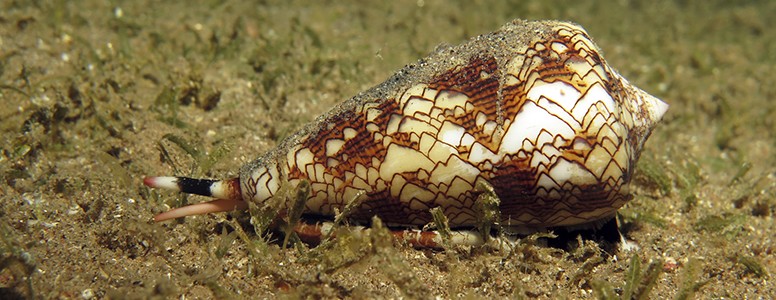Scientists believe a component from cone snails (also known as fish-hunting snails) could be used to increase the shelf life of insulin when outside of a fridge.
Insulin medication needs to be stored in the fridge when not in use and kept at temperatures lower than 25°C (77°F) when in use. Warmer temperatures than this can lead to insulin losing its effectiveness.
While previous attempts to prolong the thermal stability of insulin have failed, a research team led by Dr Christopher Hill and Dr Danny Chou from the University of Utah has developed a new approach inspired by cone snails.
The researchers choose to study the insulin venom used by fish-hunting cone snails because of its structure. The insulin is used by the snails to immobilise their prey by inducing hypoglycemia (low blood glucose levels).
The cone snail-inspired insulin has a chemical structure that has demonstrated increased thermal stability. The research team has tested it on mice and shown that the insulin achieves similar results compared to human insulin.
The team tested how well the cone snail-inspired insulin behaved in an environment of 37°C (99°F). The results showed that human insulin aggregated (lost effectiveness) at 10 hours, whereas the cone snail-inspired insulin lasted 42 hours.
Dr Chou said: “This work discovered a novel and unexpected site to introduce an additional disulphide bond on insulin, which increases the overall stability of the protein.”
The researchers think there could be a further benefit of using the insulin and are keen to investigate whether they could achieve a form of insulin that is able to automatically respond to changes in glucose levels.
Dr Chou explains: “This result presents an opportunity to control insulin bioactivity using this tethering strategy. For example, one may insert a glucose-responsive tethering here to achieve glucose-responsive insulin – a holy grail in insulin therapy.”
The findings of the research are presented in journal Chemical Science.






